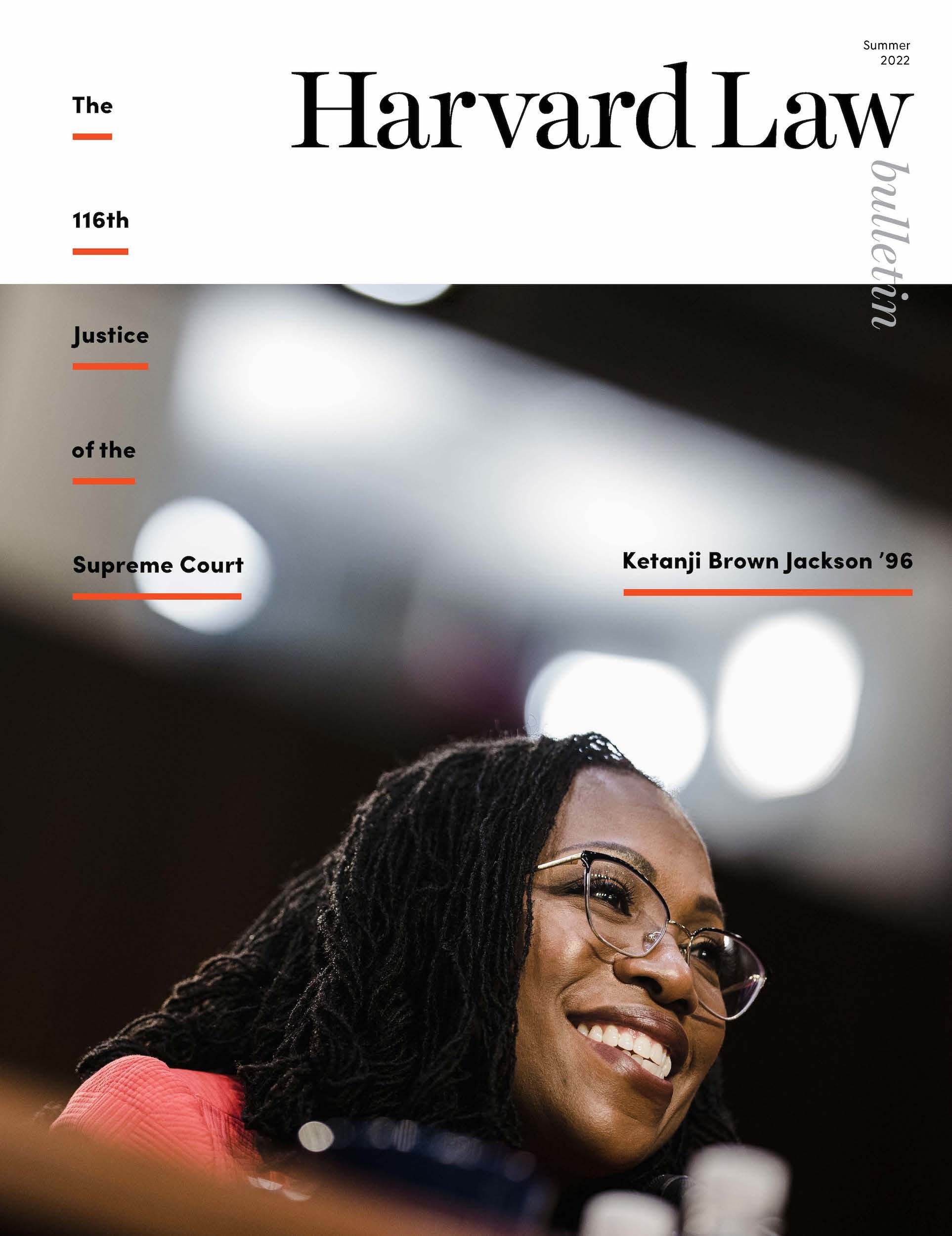Kind regards
Congrats on your Summer 2022 issue! In the midst of an endless flow of print and online information, I read every page — and my attention wasn’t based on a fear of being called on in class!
David Jonathan Cohen ’78
Washington, D.C.

Another first?
I am responding to the fine article in your last issue about Associate Justice Ketanji Brown Jackson ’96, the first African American woman appointed to the Supreme Court. I would like to note that Justice Jackson’s mother-in-law, Pamela Hardee Jackson, may now also have achieved a first. A former development officer at Harvard Law School, Pam may be the first person to have worked at the school under the leadership of one future Supreme Court justice, then-Dean Elena Kagan ’86, and to have become the proud mother-in-law of another.
Maggie Philbrick
development officer, Harvard Law School, 1997-2007
Cambridge, Massachusetts
More on Sullivan and freedom of the press
I must respond to Curt Krechevsky’s unfair critique [Letters, Summer 2022 issue] of my observations on New York Times Co. v. Sullivan [Letters, Winter 2022 issue].
First, in the nine words prohibiting “abridging the freedom of speech, or of the press,” the First Amendment may or may not extend greater protection to the press than to speech generally, but if it does, it surely does not define the press as (in Mr. Krechevsky’s words) “legitimate news reporting sources [as opposed to] biased, subjective, and even deceptive opinion platforms.” The history of newspapers, journals, pamphlets, etc., in this country demonstrates that the expectation that media will be truthful and unbiased and will sharply demarcate fact from opinion did not arise until roughly the middle of the 20th century and in recent years has seriously deteriorated on both the right and the left.
Second, Mr. Krechevsky mistakes my prediction as advocacy. The protection afforded by the Sullivan test logically rests on a foundation that the media always try, almost always successfully, to publish the truth, the whole truth, and nothing but the truth on important matters, so that they should have some protection when they commit inadvertent foot-faults in reporting on public officials. But what happens if many media outlets feel compelled by financial or political considerations (pandering to their respective bases, competing to be first in the 24/7 news cycle) to publish defamatory material without the restraint of proper research? I do not read Sullivan to protect what I see as reckless disregard of the truth consisting of telling readers the lies that they are eager to hear or doing slapdash verification in order to scoop other outlets. If the nature of the media business today causes this problem to become too frequent, especially in high-profile matters, the Supreme Court may deem the professional media unworthy of special solicitude and remove the Sullivan protection altogether.
Finally, I part company with some of Mr. Krechevsky’s assertions in his last paragraph. He wants the press to be protected from politically motivated lawsuits, while I believe that regardless of the motivation, we should judge every cause of action on its own merits. The record of the press in challenging the powerful and the perception of that are far from uniform; both have always been very dependent on political outlooks. And his clear implication that the citizenry cannot get information and think for themselves without the guidance of the press as he defines it is preposterous and is belied by the demise of the great journalistic diversity once exemplified by all the newspapers and magazines, big and small, that have gone out of business over the past 60 years or so.
Robert Kantowitz ’79
Lawrence, New York